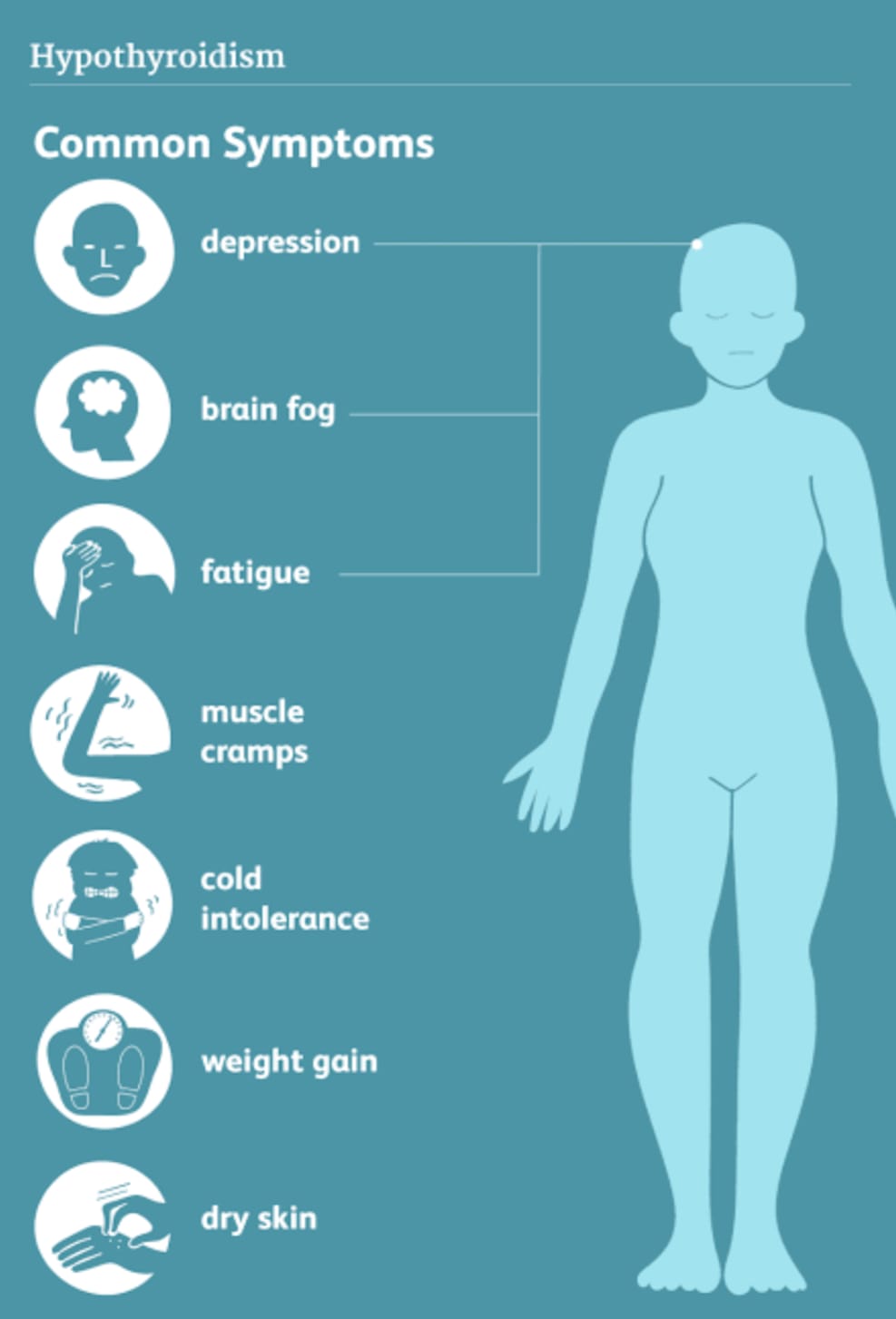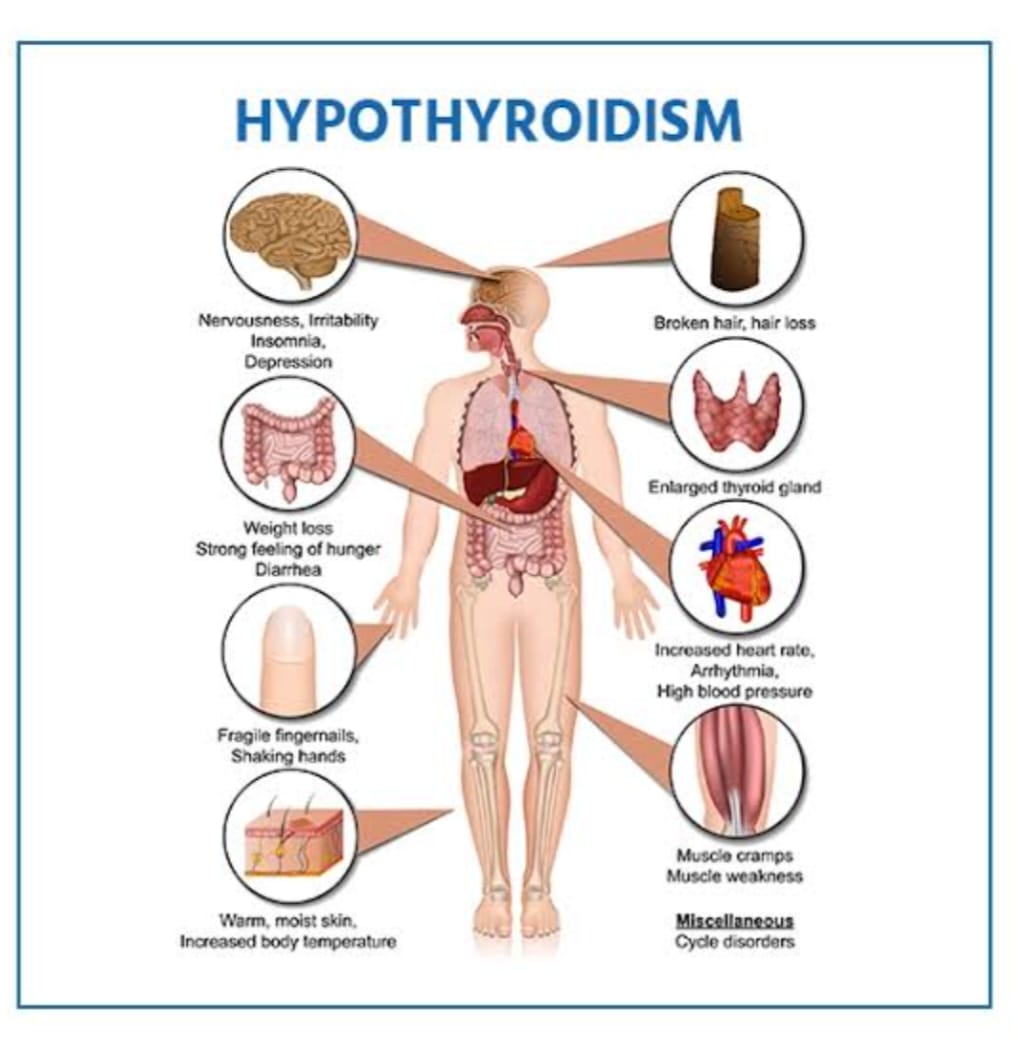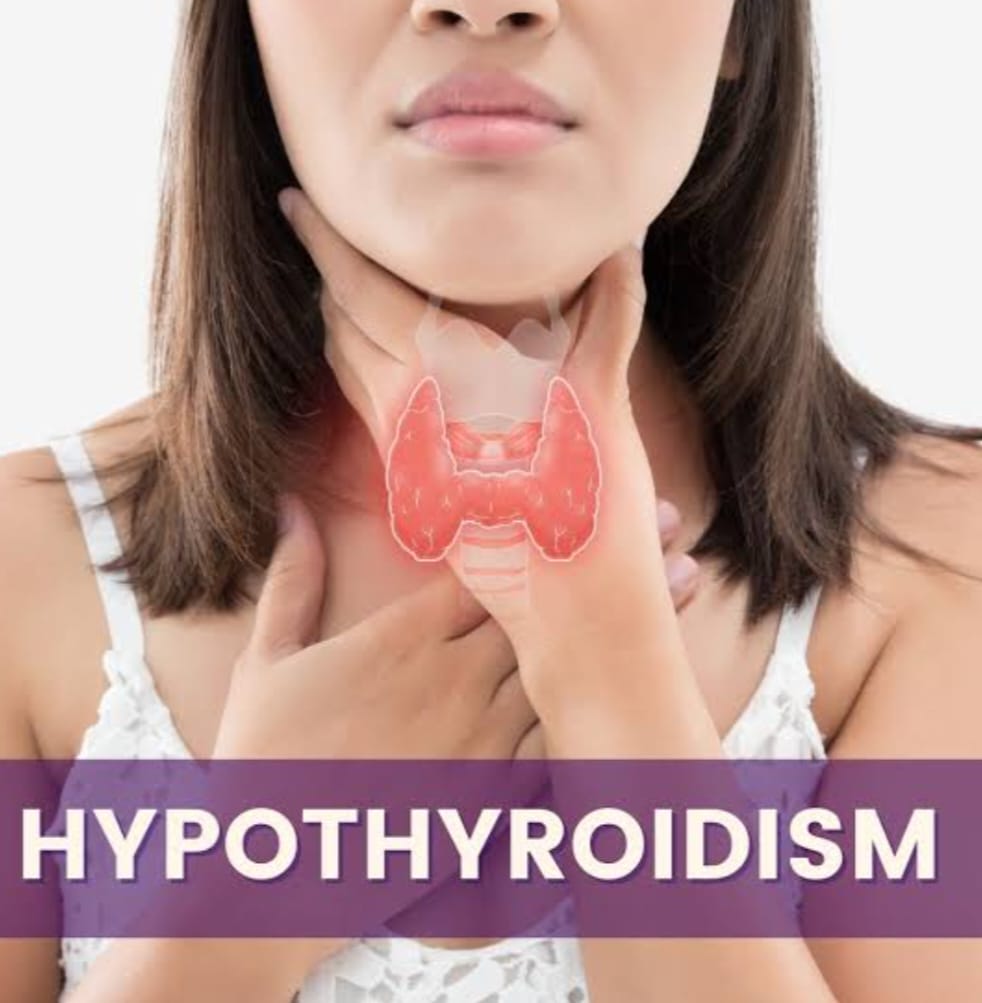Hypothyroidism
Hypothyroidism, also called underactive thyroid disease, is a common disorder. With hypothyroidism, your thyroid gland does not make enough thyroid hormone. This makes your metabolism slow down, affecting your entire body. Hypothyroidism may not cause noticeable symptoms in its early stages. Over time, hypothyroidism that isn't treated can lead to other health problems, such as high cholesterol and heart problems. When your thyroid levels are extremely low, this is called myxedema. A very serious condition.
Hypothyroidism can affect people of all ages, genders and ethnicities. It’s a common condition, particularly among women over age 60.
The symptoms of hypothyroidism depend on the severity of the condition. Problems tend to develop slowly, often over several years.
At first, you may barely notice the symptoms of hypothyroidism, such as fatigue and weight gain. Or you may think they are just part of getting older. But as your metabolism continues to slow, you may develop more-obvious problems.
Hypothyroidism symptoms may include:
• Tiredness.
• More sensitivity to cold.
• Constipation.
• Dry skin.
• Weight gain.
• Puffy face.
• Hoarse voice.
• Coarse hair and skin.
• Muscle weakness.
• Muscle aches, tenderness and stiffness.
• Menstrual cycles that are heavier than usual or irregular.
• Thinning hair.
• Slowed heart rate, also called bradycardia.
• Depression.
• Memory problems.
Causes: -
The thyroid gland makes two main hormones: thyroxine (T-4) and triiodothyronine (T-3). They support the rate at which the body uses fats and carbohydrates. They help control body temperature. They have an effect on heart rate. And they help control how much protein the body makes.
Hypothyroidism happens when the thyroid gland doesn't make enough hormones. Conditions or problems that can lead to hypothyroidism include:
• Autoimmune disease
• Thyroid surgery
• Radiation therapy
• Thyroiditis
• Medicine
Less often, hypothyroidism may be caused by:
• Problems present at birth
• Pituitary disorder
• Pregnancy
• Not enough iodine
Diagnosis: -
Thyroid function test- T3, T4, TSH, ultrasound
Homoeopathic Treatment: -
Homeopathy has a very positive role in the management of hypothyroidism.
Homeopathic medicine helps to optimise the functioning of the thyroid glands and helps deal with hypothyroidism efficiently. The Food and Drug Administration (FDA) has approved homeopathic medicine considering as very effective in hypothyroidism treatment. The various expression of disease can be managed effectively, gently and safely with homeopathic medicine. Homeopathic remedies are completely safe and have no harmful side effects. When treating hypothyroidism with homeopathic medicine you are addressing the symptoms.
Homeopathic remedies are non-addictive and are based on all natural ingredients. Homeopathic medications are a safe and powerful way to balance the body at a cellular level.
Homoeopathic approach:-
=No matter how long you have suffered from hypothyroidism we assure you that with use of homoeopathic medicine you will normalize thyroid hormone level faster than any other solution currently available.
=It is an established treatment and produces time tested results.
=Its composition is 100% safe and all its ingredients are purely natural and free from any side effects.
=It is a natural medicine formulated specifically to treat Hypothyroidism.




